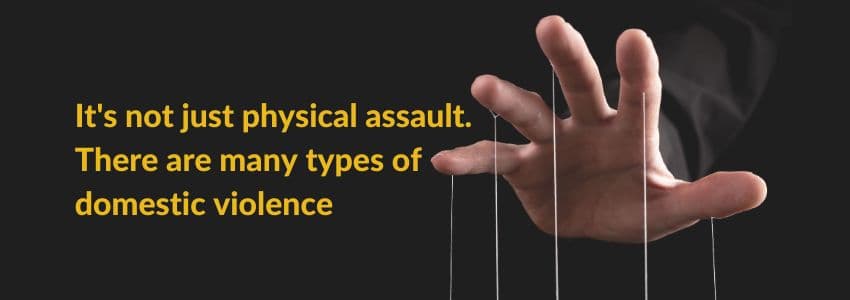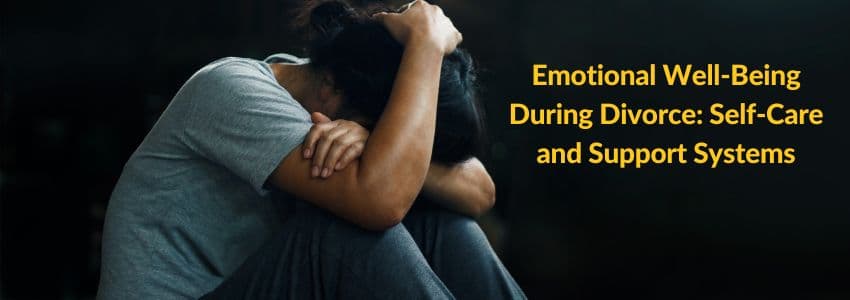It's not just physical assault. There are many types of domestic violence

What Constitutes as Domestic Violence?
Domestic violence, also referred to as 'family violence,' is any conduct that coerces or controls a family member or causes them to be fearful. It doesn't have to be physical; it can be emotional, psychological, economic, or sexual abuse, and can include harassment, stalking, or threatening behaviour. It can also involve harm to an animal or property, or behaviour that causes a child to be exposed to the effects of these actions.
Different Forms of Domestic Violence
Domestic violence manifests itself in various forms, and each can be as damaging as the next:
1. Physical Abuse: This is the most recognized form of domestic violence, involving physical harm like hitting, pushing, or other forms of physical assault.
2. Emotional/Psychological Abuse: This form involves behaviours intended to scare, terrorise, or control the victim. It can include threats, humiliation, manipulation, or efforts to isolate the victim from friends or family. The abuser seeks to undermine the victim's self-esteem and exert control over their thoughts and actions.
3. Economic/Financial Abuse: This occurs when one partner takes control of the other's economic resources, restricting their financial independence or sabotaging their economic independence, leaving the victim financially vulnerable and dependent. This could include controlling their money, preventing them from working, or forcing them into debt.
4. Sexual Abuse: This involves any unwanted sexual activity forced upon the victim without their consent or denies them the right to control their own sexual choices. Consent and respect are fundamental in any healthy relationship, and non-consensual sexual acts are a violation of the victim's rights.
Key takeaways
1. Any conduct that coerces or controls a family member or causes them to be fearful constitutes Domestic Violence.
2. Domestic violence need not to be physical; it can be emotional, psychological, economic, or sexual abuse.
3. If you or your loved ones are experiencing family violence, you should seek protection through an Intervention order.
How can you protect yourself?
Domestic violence laws are in place to protect victims and provide avenues for support. The Federal Circuit and Family Court of Australia have extensive resources and legal provisions to help victims navigate the legal process and secure the necessary protection orders.
If you or your loved ones are going through any form of family violence, you need to ensure you receive immediate protected by obtaining an Intervention order against the perpetrator of family violence ( respondent).
Apply for a family violence Intervention order (FVIO) with the assistance of a lawyer.
FVIO is a legally enforceable document that aims to provide protection. The order has conditions to stop the respondent from using family violence against the protected person.
Related article: How to apply for an Intervention order in Australia?
Where can you seek support?
For anyone living under the shadow of domestic violence, it's essential to understand that help is readily available, and you have legal rights specifically designed to protect you.
It’s important to know that making the first step towards freedom from domestic violence is entirely in your hands. Reach out to trusted friends or family members, engage with local support services, or contact law enforcement if you feel in immediate danger.
You should contact the police by calling 000 if you are in immediate danger or if you feel unsafe.
Our firm, with a dedicated team of compassionate and experienced family lawyers, is also here for you. We understand the trauma and fear domestic violence can inflict, and our primary aim is to ensure your safety. We can assist with every aspect of your legal journey, from applying for protection orders to navigating the family court system.
Why you should seek help?
Understanding the full scope of domestic violence is the first step towards addressing it. It is not limited to physical assault; emotional, economic, and sexual abuses are all forms of domestic violence. If you or someone you know is experiencing any form of domestic violence, it's crucial to seek help immediately.
Remember, seeking help is not a sign of weakness, but a declaration of your strength and determination to reclaim your life. Contact us today to schedule a confidential consultation with a family lawyer. The journey may seem challenging, but with the right support and guidance, you are more than capable of overcoming this hurdle.
Share this article
Need Legal Assistance?
Our experienced legal team is here to help you with your immigration and legal matters.





